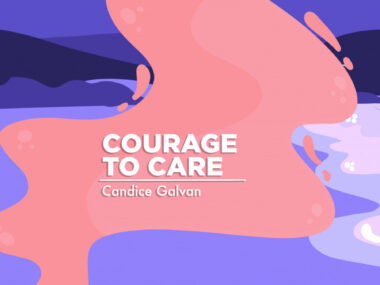What I’ve learned while parenting with chronic illness
I had to decide how much I wanted to share with my daughter about NMOSD
Written by |

I thought I had put on a brave face and spoken in a calm tone. I’d told my daughter that I’d been to the emergency department at the hospital many times before, so it wasn’t a big deal. I’d be home before her bedtime.
Three hours in, she started to text me: “Mama, are you OK? Dad and I want an update. Are you coming home soon?”
I sent my curious 12-year-old a selfie of me smiling as proof that I was doing fine. I told her that I’d seen the doctor and, as anticipated, nurses were hooking me up to an IV line. I’d be home soon, and there was nothing to worry about. I added that I loved her more than anything.
“I know you don’t want me to worry,” she replied, “but I’ll always worry about you, Mama.”
My heart broke.
Learning empathy
As a parent, it’s my job to worry about my daughter, not the other way around. It’s an unnatural role reversal I’d never considered when I’d desperately wanted a child several years earlier. I’ve had neuromyelitis optica spectrum disorder (NMOSD) for over 15 years, so my daughter has only ever known me as being sick.
It was much easier to hide my health challenges when she was younger, but as she grew older, she realized that her mom wasn’t like the other parents. I did everything with her like other parents do — volunteering for field trips, attending other school events, driving her to dance competitions — but these things had a high price. Afterward, I’d need to sleep and couldn’t tend to her needs by doing things like cooking dinner, playing board games, or doing the laundry.
On those days, my husband took over the household responsibilities. He’d take her on daddy-daughter outings to the rock-climbing gym or a bookstore. Afterward, she’d find me in the same spot she’d left me, usually buried under a heat blanket on the sofa, the dog quietly snoring at my feet. I could see the look of concern on her face.
NMOSD is scary on the best of days, so over the years, I’ve pondered what to share with her. But tiny ears hear a lot more than they let on, such as when a doctor would call to check up on me or when I’d be having a discreet conversation with my spouse. She’d tell friends things like, “You’re getting over a cold? I don’t want my mom to get sick, so maybe I could go to your house instead, and I’ll just have to wash my hands a lot.”
Later, I’d find the courage to ask her questions about what she knew or whether she worried about me. I’d ask if she had any questions for me, but she’d brush off my inquiries like it wasn’t a big deal. I know better now, though.
I recently had another round of Solu-Medrol (methylprednisolone) treatments, the last of which were administered at home. A traveling nurse was supposed to come to my home to help, but I preferred to spare her the trip because I knew how to hook up the IV line myself. During the treatment, my daughter bounced into my room and stopped in her tracks. I could tell she wanted to give me privacy, but she was also curious. Sometimes the imagination is worse than reality, so I asked if she wanted to stay and watch television with me. When I struggled to hook up the saline rinse with one hand, she offered to help. In that moment, I realized that I couldn’t shield her from the truth forever.
We all have challenges, and it’s OK to be vulnerable in front of our children. That’s how they learn that the world isn’t all rainbows and magic. They learn how to get back on their feet after failing, and how to be empathetic. After my daughter helped me hook up the medication and finish another saline rinse, she looked triumphant. I couldn’t be prouder of her.
Note: Neuromyelitis News is strictly a news and information website about the disease. It does not provide medical advice, diagnosis, or treatment. This content is not intended to be a substitute for professional medical advice, diagnosis, or treatment. Always seek the advice of your physician or other qualified health providers with any questions you may have regarding a medical condition. Never disregard professional medical advice or delay in seeking it because of something you have read on this website. The opinions expressed in this column are not those of Neuromyelitis News or its parent company, Bionews, and are intended to spark discussion about issues pertaining to neuromyelitis optica spectrum disorder.







Leave a comment
Fill in the required fields to post. Your email address will not be published.